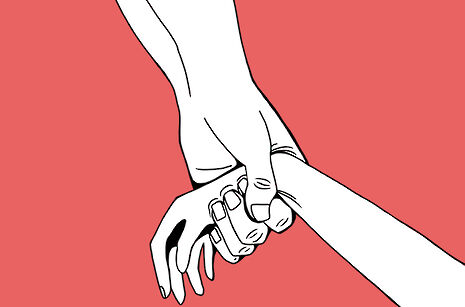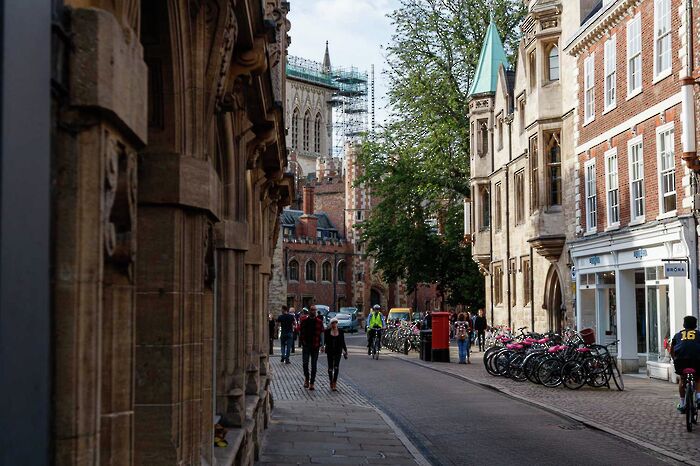Confronting my family’s tradition of child marriage
“This particular wedding was, for me, a depressing ordeal. My cousin, the bride, was 15, the same age as me”, writes Sara Dehvari

Content Note: This article contains detailed discussion of child marriage and mention of statutory rape and pregnancy
I often picture an alternate world where my parents never left Iran. I would have been born and raised there, my life a polar opposite to what it has become. The reality is, I would have been married off years ago, now a mother of two children at least.
It’s a frightening thought; one that gives me reason to feel grateful, but also powerlessly burdened. Whilst at home over the vacation, I occasionally hear news of relatives and cousins who were nine or ten years old the last time I saw them, now getting married and birthing children.
Hearing this has brought back a haunting image: a 13-year-old relative, her belly swollen under her dress, boasting an eight month pregnancy. I was 15 at the time, attending my cousin’s wedding in Iran. This particular wedding was, for me, a depressing ordeal. My cousin, the bride, was the same age as me. Every young girl surrounding me was either engaged, married, or pregnant.
The first question most women would ask me was “Who is your naamzad?”
Naamzad, or fiancé: I didn’t initially know what the word meant but it struck me like a slap to the face in every conversation. I replied that I had none, and that in the UK, and indeed in most countries, the marriage laws are different, and rightfully so. I would then follow by declaring that I one day wanted to go to university, a plan that would have been thwarted by marriage. I received responses ranging from shock, disgust, pity, and sometimes longing.
During my time in Iran I felt alienated as an unmarried 15 year old
“So when will you get married?” they would ask. “I don’t know, maybe I won’t. The average age of marriage in the UK at least is around 30, so there’s no rush.”
The typical response to this was disturbed laughter followed by “I’ll be a great grandmother by then!”
I was shocked, not just by the very practice of marrying young girls to older (sometimes much older) cousins or strangers, but by how the girls themselves reacted. It is true that these marriages were often forced upon the girls against their cries and resistance, but in my community at least, it was more common for girls to fervently welcome marriage. My mum, who was married at 14, said she counted down the days until she got married; only married girls could visit their friends freely or avoid their parents’ chores. Though my mum admits her naivety, it made sense; a girl’s marriage was her only ticket to any form of recognition by the community.
During my time in Iran I felt alienated as an unmarried 15 year old. My mum received shameless proposals from cousins, asking for her daughter’s hand in marriage. My dad was continuously asked why he hadn’t wedded me off the moment I ‘came of age.’
I confess that after just four weeks I began to feel unnatural. It wasn’t surprising that girls, who faced a lifetime of pressure, grew to measure their self-worth by their prospect of marriage. Indeed, this is a fairly common phenomenon in child marriage cases around the world. Parents always speak of the economic incentive (provided through dowries and the general financial security brought by marriage) and the social concerns of family reputation.
As for my parents’ response to these proposals and comments, I saw how difficult it was for them to reconcile the traditions they had been raised with, with the traditions of the world they had escaped to. They defended my right to make the choice for myself. I however attacked them for not going further and denouncing the whole institution of child marriage. It was all fair and well protecting their daughter, but what about their nieces and nephews?
That summer visit in 2015 changed me. I told myself I was trying to achieve what those girls back home didn’t have the opportunity to
In response, they admitted it was complicated. Their singular protests would not tear the very fabric which sealed our society together, especially when the law put the legal marriage age at 13 for girls and 15 for boys. There was also the added difficulty of confronting their own family and any potential family conflict such protests would bring. To be fair, I did watch my dad’s few attempts of denouncement fall on deaf ears: our views were seen as corrupted by Western values, and we were pitied for it.
It is obvious that a lot of it comes down to poverty. Some statistics place 70 percent of the population where my family are based (Sistan and Baluchestan Province) below the poverty line.
The girls there attend school but leave after pregnancy. My cousin, who got married in 2015, told me she wanted to become a doctor and said she would stay in school after marriage. I was awestruck by her intellect; she was much smarter than me. I recall desperately urging her on her wedding day to avoid having children in the near future. She took my hand and reassured me she wouldn’t. A month after we had returned to the UK, my dad told me she was pregnant. She was forced to leave school and has since given birth to a second child.
You hear of the struggle these girls go through in labour. The younger girls have particularly agonising births, and midwives often recount how their small and fragile bodies are not fit to bear the birthing process. Their experiences sometimes end fatally. Then there’s the marriage itself. I’ve heard stories of abusive husbands who, already empowered by their gender, become even more domineering with the naivety and powerlessness of their child wives. Cases of polygamy have also grown amongst my extended family over the last few months.
That summer visit in 2015 changed me. I worked harder in school and in times of academic hardship I reminded myself of my newfound purpose; I told myself I was trying to achieve what those girls back home didn’t have the opportunity to. No woman in my mum’s family had been to university. To them it is simply impossible. I have the security of the law in this country, and my parents’ support. Any girl there who tried would be alone.
After I got into university, my parents announced it to my family in Iran over the phone. It was a huge deal that I was going to any university, let alone Cambridge. I hoped that some of the girls I had spoken to in Iran about my aspirations to go to university would hear the news and see that I really did it. The very act of going to university challenged their view of society and I knew it made some of them uncomfortable. Though nothing substantial, I considered this a miniscule success.
During my first year in Cambridge, I would sometimes take in my surroundings and feel guilty. I could have easily been in their position, just as easily as they could have been in mine. I also confess that I sometimes feel ashamed to call myself a feminist when there are injustices being committed against women within my own family in Iran. I know these guilts are silly and are not my burden to bear, but they are difficult to avoid when I think of my family. What’s indisputable is that as I start my second year of university, I will continue to strive to challenge the expectations of the society my family left behind. Getting into university was only the start of it.
 News / Report suggests Cambridge the hardest place to get a first in the country23 January 2026
News / Report suggests Cambridge the hardest place to get a first in the country23 January 2026 News / Reform candidate retracts claim of being Cambridge alum 26 January 2026
News / Reform candidate retracts claim of being Cambridge alum 26 January 2026 News / Cambridge ranks in the top ten for every subject area in 202623 January 2026
News / Cambridge ranks in the top ten for every subject area in 202623 January 2026 Comment / Cambridge has already become complacent on class23 January 2026
Comment / Cambridge has already become complacent on class23 January 2026 News / Palestine activists project slogans onto John’s24 January 2026
News / Palestine activists project slogans onto John’s24 January 2026









